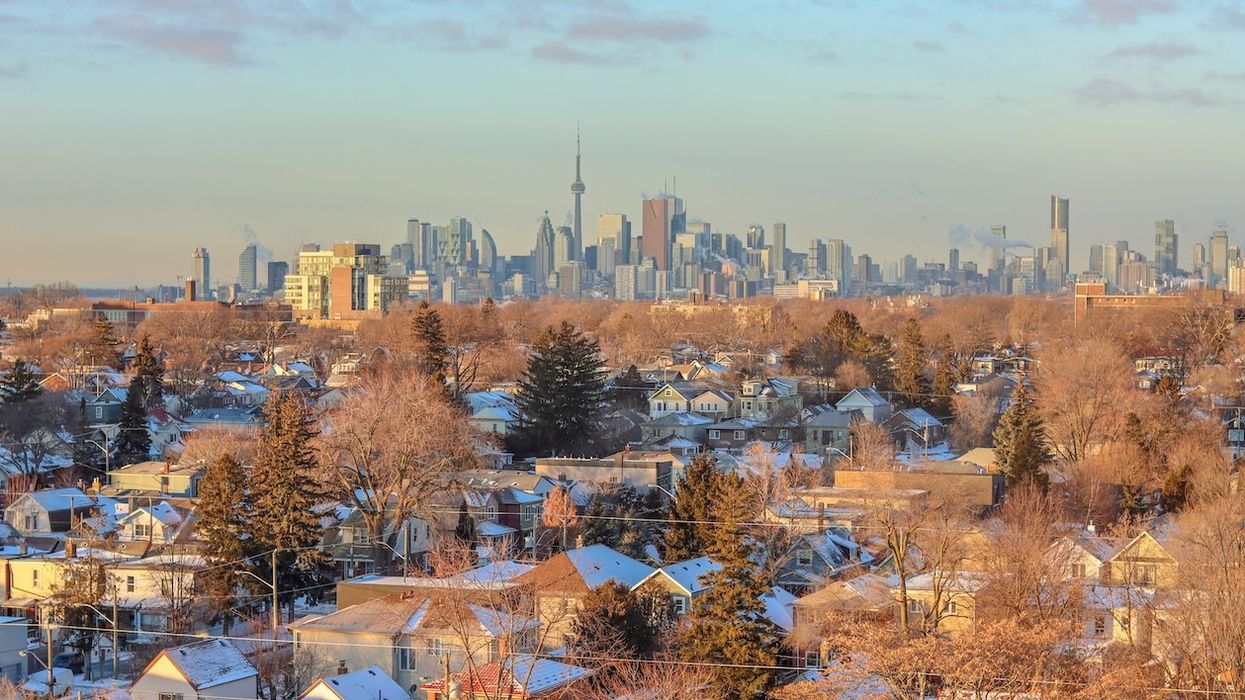Cities, the neglected orphans of Canada’s increasingly fractious federation, are growing restless. Hobbled by a constitution that leaves them at the mercy of often-hostile governments, provincial and national, the country’s urban centres are starting to fight back. They’ve had enough of the financial abuse and political incursion that have left them spectators at their own destinies.
Ottawa and the provinces are also back at each other’s throats, unwilling to cooperate and unable to cope with the strains and stresses of a governance system created in simpler times.
Thanks to a series of factors – COVID-19, the housing crisis, chronically weak provincial leadership and sky-high immigration rates — cities in Canada have been left holding the bag for any number of costs they don’t have the means to cover.
Last week in Toronto, tensions between the city and the feds finally boiled over for all to see. Incensed by Mayor Olivia Chow’s threat to impose a tax increase she pointedly calls the “Federal Impacts Levy,” local Liberal MP Yvan Baker lost his cool. “I find it incredibly disappointing,” he fumed. “I find it outrageous.” Railing against the mayor’s “shakedown,” the Honourable Member was clearly unaware of just how ridiculous he sounded. One couldn’t help wonder whether the real reason for Baker’s outrage wasn’t the city’s failure to show gratitude for yet another federal handout.
Yet surely that’s the point. Why should cities be beholden to Ottawa or the provinces for the funds foisted on them by policies imposed from on high? Formerly known as “downloading,” it refers to the practice of dumping costs of federal and provincial policies and programs on municipalities, which, we know, have no option but to increase property taxes and raise user fees.
In Ontario, the process began in earnest under Mike Harris, premier between 1995 and 2002. He managed the remarkable feat of downloading upwards of $3B onto Toronto and other towns and cities across the province. Queen’s Park took over the education file and handed to municipalities, in whole or in part, the costs of transit, social assistance, housing and public health. If that wasn’t enough, he also cut provincial transfer payments to cities and then forcibly amalgamated them. Despite promises these changes would be “revenue neutral,” they were anything but. Under pressure to reduce its ballooning deficit, Doug Ford’s Tories gave downloading a second go in its 2020 budget, albeit less dramatically.
More recently, Canadian cities face the skyrocketing cost of Ottawa’s immigration policies. While Baker was blowing his top in Toronto, Prime Minister Justin Trudeau was meeting with Quebec Premier Francois Legault’s to discuss the latter’s frustration with the flood of asylum seekers that has overwhelmed his province’s social assistance network. In 2023 alone, 60,000 refugees entered Quebec, more than all other provinces combined. Legault wants Ottawa to reimburse the $470M his government spent on migrants in 2021 and ’22 alone. It didn’t take long for Parti Quebecois to bring up that province’s “need to decide for ourselves instead of begging Ottawa’s collaboration.”
Similar scenarios are playing out in cities across Canada. The simple truth is that property taxes are wildly unequal to the task of funding the many and varied demands made of cities in the 21st century. But that doesn’t mean Ottawa or the provinces are willing to make room on the Canadian taxation landscape for cities. Chow’s proposal for a Toronto sales tax of 1% left Queen’s Park at a loss for words. Ford’s silence speaks volumes.
Some provinces are smarter about handling cities than others, but it’s clear that cities have more in common with each other than with the provincial governments on which they are dependent. Toronto and Vancouver, as well as Halifax and Calgary and let’s not forget, Ottawa, face similar challenges. And as the Federation of Canadian Municipalities likes to point out, though municipalities are responsible for 60% of the country’s infrastructure, they receive only 10% of taxes. Yet they are the economic engines on which provincial and federal rely for their revenues. Toronto alone accounts for 20% of the national GNP.
“We are seeing [property tax increases of] six, seven and even 10 percent, noted Brian Rosborough, executive director of the Association of Municipalities of Ontario, in advance of a January meeting of the Rural Ontario Municipal Association. “That’s just for 2024. We have fundamentally a systemic problem that needs to be addressed. We can draw a direct line to the property tax proposals… and the downloading of the 1990s.”
In Canada, let alone Ontario, the more things change the more they stay the same.





















